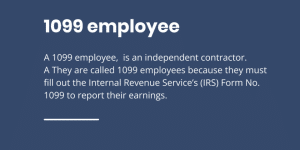Updated March 12, 2025
Common Examples of Workplace Retaliation
Workplace retaliation can manifest in various ways, some more obvious than others. Recognizing these examples is crucial for employees to protect their rights and for employers to avoid engaging in unlawful behavior. Here are some common forms of retaliation:
Termination or Demotion: Perhaps the most severe form of retaliation, firing or demoting an employee shortly after they engage in a protected activity can be a clear sign of retaliation.
Salary Reduction or Loss of Benefits: Unexplained cuts in pay, bonuses, or benefits following a complaint or report may indicate retaliatory action.
Negative Performance Reviews: Sudden changes in performance evaluations, especially when they contradict previous positive reviews, can be a form of retaliation.
Transfer to Less Desirable Positions: Moving an employee to a different role or location that is less favorable or hinders their career growth may be retaliatory.
Increased Scrutiny or Micromanagement: Subjecting an employee to excessive monitoring or criticism after they’ve engaged in protected activities can constitute retaliation.
Exclusion from Meetings or Projects: Deliberately leaving an employee out of important discussions or assignments they would normally be involved in can be a subtle form of retaliation.
Hostile Work Environment: Creating or allowing a work atmosphere that is intimidating or offensive towards the employee who raised concerns.
Scheduling Changes: Altering an employee’s work hours or shifts in a way that causes hardship, particularly if it interferes with family responsibilities or education.
Denial of Promotion or Training Opportunities: Withholding career advancement opportunities or professional development resources can be retaliatory.
Threats or Intimidation: Verbal or written threats, whether direct or implied, regarding job security or future opportunities within the company.
Understanding these examples helps employees identify potential retaliation and take appropriate action. For employers, awareness of these forms of retaliation is crucial in developing policies and training programs to prevent such occurrences.
Defining Workplace Retaliation
Workplace retaliation occurs when an employer takes adverse action against an employee for engaging in legally protected activities. These activities may include reporting discrimination, harassment, safety violations, or other unlawful practices. While retaliation can be subtle or overt, its impact on an employee’s career and well-being can be significant.
As we navigate through this guide, we’ll examine the nuances of workplace retaliation, from its definition to practical steps for addressing it. Whether you’re an employee concerned about potential retaliation or an employer seeking to create a fair work environment, this article provides valuable insights to help you navigate these challenging situations.
Understanding Workplace Retaliation
Workplace retaliation encompasses a wide range of adverse actions taken by employers against employees who exercise their legal rights. These rights are protected under various federal and state laws, including anti-discrimination statutes, whistleblower protections, and labor regulations.
At its core, retaliation occurs when an employer punishes an employee for engaging in a legally protected activity. This can include filing a complaint about discrimination or harassment, participating in an investigation, or refusing to engage in illegal activities. The key element is the causal connection between the protected activity and the adverse action taken by the employer.
It’s important to note that retaliation can occur even if the underlying complaint or report is ultimately found to be without merit. The law protects employees who act in good faith, regardless of the outcome of their initial concerns.
Understanding the scope of workplace retaliation is crucial for both employees and employers. For employees, it provides the knowledge necessary to recognize when their rights may be violated. For employers, it underscores the importance of creating fair policies and procedures to prevent retaliatory actions.
Legal Protections Against Workplace Retaliation
Employees are safeguarded against workplace retaliation through a robust framework of federal and state laws. These legal protections ensure that workers can exercise their rights without fear of reprisal. Understanding these laws is crucial for both employees and employers to navigate the complexities of workplace dynamics.
Federal Laws
Title VII of the Civil Rights Act of 1964: This landmark legislation prohibits retaliation against employees who oppose discriminatory practices based on race, color, religion, sex, or national origin.
Americans with Disabilities Act (ADA): Protects individuals with disabilities from retaliation when they request reasonable accommodations or report discrimination.
Age Discrimination in Employment Act (ADEA): Safeguards employees aged 40 and older from retaliation related to age discrimination complaints.
Fair Labor Standards Act (FLSA): Prohibits retaliation against employees who assert their rights regarding minimum wage, overtime pay, and other wage-related issues.
Family and Medical Leave Act (FMLA): Protects employees from retaliation for taking or requesting leave under this act.
Occupational Safety and Health Act (OSHA): Shields employees who report safety violations or unsafe working conditions from retaliatory actions.
State Laws
Many states have enacted their own anti-retaliation laws, often providing additional protections beyond federal statutes. These may include:
Whistleblower Protection Laws: Safeguarding employees who report illegal activities or violations of public policy.
State-Specific Anti-Discrimination Laws: Offering broader protections against retaliation in discrimination cases.
Workers’ Compensation Retaliation Laws: Preventing employers from retaliating against employees who file workers’ compensation claims.
Protected Activities
Understanding what constitutes a protected activity is crucial. Generally, protected activities include:
- Filing a complaint about discrimination or harassment
- Participating in an investigation of alleged workplace misconduct
- Refusing to follow orders that would result in discrimination
- Requesting accommodation for a disability or religious practice
- Asking managers or coworkers about salary information to uncover potentially discriminatory wages
These legal protections form a critical foundation for maintaining fair and equitable workplaces. They empower employees to speak up against wrongdoing without fear of reprisal and hold employers accountable for maintaining a retribution-free work environment.
Identifying Subtle Forms of Retaliation
While some forms of workplace retaliation are overt and easily recognizable, others can be more subtle and difficult to detect. These less obvious forms of retaliation can be just as damaging to an employee’s career and well-being. Recognizing these subtle signs is crucial for employees to protect their rights and for employers to maintain a fair work environment.
Isolation and Exclusion
One of the more insidious forms of retaliation involves socially isolating an employee. This can manifest in several ways:
- Being left out of important meetings or discussions that the employee would typically be involved in.
- Exclusion from team-building activities or social events.
- Reduced communication from supervisors or colleagues.
- Being physically moved to a less desirable workspace, away from team members.
Increased Workload or Unrealistic Expectations
Employers may attempt to disguise retaliation as performance management:
- Assigning an excessive amount of work with unreasonable deadlines.
- Setting unattainable goals or frequently changing performance metrics.
- Requiring unnecessary and time-consuming reports or documentation.
- Imposing stricter time-tracking or productivity monitoring.
Withholding Resources or Support
Subtle retaliation can involve making an employee’s job more difficult by:
- Denying access to necessary tools, information, or resources.
- Reducing administrative or technical support.
- Delaying approval for expenses or reimbursements.
- Withholding mentorship or guidance typically provided to others in similar roles.
Selective Enforcement of Policies
Employers may use company policies as a cover for retaliatory actions:
- Strictly enforcing minor infractions for the targeted employee while overlooking similar behavior in others.
- Suddenly requiring formal documentation for routine requests or actions.
- Implementing new policies that disproportionately affect the employee who engaged in protected activity.
Manipulating Performance Reviews
Subtle changes in performance evaluations can be a form of retaliation:
- Focusing excessively on minor mistakes while downplaying achievements.
- Using vague or subjective criteria to justify lower ratings.
- Changing the frequency or format of reviews in a way that disadvantages the employee.
- Providing positive verbal feedback but documenting negative assessments in writing.
Creating a Hostile Work Environment
While not always overt, creating an uncomfortable work atmosphere can be retaliatory:
- Encouraging or allowing gossip or rumors about the employee.
- Assigning menial tasks not typically part of the employee’s job description.
- Excessive monitoring or surveillance of the employee’s activities.
- Making subtle threats or comments about job security or future opportunities.
Recognizing these subtle forms of retaliation requires vigilance and awareness. Employees should document any changes in their work environment or treatment following a protected activity. For employers, it’s crucial to have clear policies and training in place to prevent these subtle forms of retaliation and to address them promptly if they occur.
The Impact of Workplace Retaliation
Workplace retaliation extends far beyond the immediate effects on the targeted employee. Its repercussions ripple through the entire organization, affecting morale, productivity, and the overall work culture. Understanding the full scope of these impacts is crucial for both employees and employers.
Individual Employee Impact
For the employee facing retaliation, the consequences can be severe and long-lasting:
- Emotional Distress: Experiencing anxiety, stress, and depression due to the hostile work environment.
- Career Setbacks: Missed opportunities for advancement or professional growth.
- Financial Strain: Potential loss of income, benefits, or future earning capacity.
- Health Issues: Physical health problems stemming from prolonged stress and anxiety.
- Damage to Professional Reputation: Potential long-term career impacts if forced to leave the job under negative circumstances.
Organizational Consequences
Retaliation can have significant negative effects on the entire workplace:
- Decreased Morale: Other employees may feel fearful or demotivated, leading to a toxic work environment.
- Reduced Productivity: Employees may be less likely to take initiative or go above and beyond in their roles.
- Increased Turnover: Talented employees may leave the organization, leading to higher recruitment and training costs.
- Legal Risks: The company may face costly lawsuits and potential damage to its public reputation.
- Compliance Issues: A culture of retaliation can lead to broader non-compliance with labor laws and regulations.
Broader Societal Impact
The effects of workplace retaliation can extend beyond the immediate workplace:
- Erosion of Trust: Widespread retaliation can lead to a general distrust in employers and the job market.
- Economic Consequences: High-profile retaliation cases can impact entire industries or local economies.
- Regulatory Changes: Persistent issues with retaliation may lead to stricter labor laws and enforcement.
- Social Justice Implications: Retaliation often disproportionately affects marginalized groups, perpetuating broader societal inequalities.
Long-Term Career Effects
For individuals who experience retaliation, the impact on their career trajectory can be significant:
- Difficulty Finding New Employment: Gaps in employment or unexplained job changes can raise red flags for future employers.
- Loss of Professional Networks: Retaliation can strain or sever important professional relationships.
- Skill Stagnation: Being sidelined or forced out of a job can lead to missed opportunities for skill development.
- Psychological Barriers: Fear of future retaliation may make individuals hesitant to assert their rights in new workplaces.
Impact on Workplace Culture
Retaliation can fundamentally alter the culture of an organization:
- Silencing Effect: Employees may become reluctant to report issues or voice concerns.
- Erosion of Trust: Breakdown in trust between management and employees.
- Decreased Innovation: A fear-based culture can stifle creativity and risk-taking.
- Ethical Compromises: Employees may feel pressured to overlook unethical or illegal practices.
Understanding these wide-ranging impacts underscores the importance of preventing and addressing workplace retaliation. It’s not just about protecting individual employees; it’s about fostering a healthy, productive, and ethical work environment that benefits everyone involved.
Steps to Take If You Suspect Retaliation
If you believe you’re experiencing workplace retaliation, it’s crucial to take proactive steps to protect your rights and gather evidence. Here’s a comprehensive guide on what to do if you suspect you’re being retaliated against:
Document Everything
Start by creating a detailed record of events:
- Keep a journal of incidents, including dates, times, and descriptions of what occurred.
- Save all relevant emails, memos, and other communications.
- Note any changes in your job duties, work environment, or treatment by colleagues and supervisors.
- Document performance reviews and any sudden changes in feedback.
Review Company Policies
Familiarize yourself with your employer’s policies:
- Read your employee handbook for information on reporting procedures.
- Understand your company’s anti-retaliation policy, if one exists.
- Check for any specific guidelines on filing internal complaints.
Communicate with Your Employer
Consider addressing the issue internally:
- Follow your company’s procedures for reporting retaliation.
- Put your concerns in writing, keeping a copy for your records.
- Be professional and factual in your communication.
- Request a written response to your concerns.
Gather Witnesses
Identify colleagues who may have witnessed the retaliatory behavior:
- Discreetly ask if they’d be willing to provide a statement.
- Don’t pressure anyone to get involved if they’re uncomfortable.
- Keep a list of potential witnesses and their contact information.
Maintain Your Performance
Continue to perform your job duties to the best of your ability:
- Meet deadlines and maintain the quality of your work.
- Avoid giving your employer any legitimate reasons for disciplinary action.
- Keep records of your accomplishments and positive feedback.
Seek Legal Advice
Consult with an experienced employment law attorney:
- Many attorneys offer free initial consultations.
- Bring all your documentation to the meeting.
- Discuss your options and the potential outcomes of taking legal action.
File a Formal Complaint
Consider filing a complaint with the appropriate government agency:
- The Equal Employment Opportunity Commission (EEOC) handles many retaliation claims.
- State labor departments or human rights commissions may also accept complaints.
- Be aware of filing deadlines, which can vary depending on the type of claim.
Preserve Electronic Evidence
Take steps to secure any digital evidence:
- Save important emails and documents to a personal device or cloud storage.
- Take screenshots of relevant information on company systems.
- Be cautious not to violate any company policies regarding data privacy.
Consider Your Long-Term Career
Think about your future career prospects:
- Update your resume and consider looking for new job opportunities.
- Network discreetly with contacts outside your current workplace.
- Prepare for potential references or explanations about your current situation.
Take Care of Your Well-being
Don’t neglect your mental and physical health:
- Seek support from friends, family, or a professional counselor.
- Practice stress-management techniques.
- Consider taking time off if the situation is severely impacting your well-being.
By following these steps, you can protect your rights and build a strong case if you decide to take legal action. Remember, retaliation is illegal, and you have the right to a workplace free from such behavior. Taking prompt and thorough action can help you address the situation effectively and safeguard your career.
Proving Workplace Retaliation
Demonstrating that workplace retaliation has occurred can be challenging, as it often involves proving the employer’s intent. However, with the right approach and evidence, it is possible to build a strong case. Here’s a comprehensive guide on how to prove workplace retaliation:
Establish a Timeline
Creating a clear chronology of events is crucial:
- Document the protected activity (e.g., filing a complaint, participating in an investigation).
- Note the date when the employer became aware of this activity.
- Record the timing of any adverse actions taken against you.
- Highlight the proximity between the protected activity and the retaliatory action.
Gather Direct Evidence
While rare, direct evidence can be powerful in proving retaliation:
- Emails or memos explicitly stating retaliatory intent.
- Verbal statements from supervisors or managers admitting to retaliation.
- Witness accounts of conversations where retaliation was discussed.
- Written policies or directives that appear retaliatory in nature.
Collect Circumstantial Evidence
More commonly, retaliation cases rely on circumstantial evidence:
- Sudden changes in performance evaluations or job responsibilities.
- Inconsistent application of company policies.
- Patterns of behavior towards other employees who engaged in similar protected activities.
- Suspicious timing of adverse actions following protected activities.
Document Performance History
Establishing your work record is important:
- Compile past performance reviews and accolades.
- Gather emails or notes praising your work.
- Document any awards or recognitions received.
- Show a history of promotions or increased responsibilities.
Analyze Company Policies and Practices
Compare your treatment to established norms:
- Review employee handbooks and company policies.
- Gather evidence of how similar situations were handled for other employees.
- Identify any deviations from standard procedures in your case.
Secure Witness Statements
Corroborating accounts can strengthen your case:
- Obtain written statements from colleagues who witnessed the retaliation.
- Encourage witnesses to be specific about what they saw or heard.
- Include contact information for potential witnesses in your documentation.
Demonstrate the Impact
Show how the retaliatory actions affected you:
- Document any financial losses due to demotion, reduced hours, or termination.
- Keep records of medical visits or therapy related to stress from the situation.
- Note any impact on your career progression or professional reputation.
Establish a Pattern
If possible, show that the retaliation wasn’t an isolated incident:
- Document any previous instances of retaliation in the company.
- Gather information about similar complaints from other employees.
- Look for systemic issues in how the company handles complaints or protected activities.
Consult with Experts
Consider seeking professional opinions:
- Engage an employment law attorney to review your evidence.
- Consult with industry experts who can testify about standard practices.
- Work with financial experts to calculate economic damages if applicable.
Preserve Digital Evidence
Ensure all electronic evidence is properly saved and accessible:
- Back up emails, text messages, and other digital communications.
- Take screenshots of relevant information on company systems or social media.
- Maintain a log of any electronic evidence you’ve collected.
Prepare for Counter-Arguments
Anticipate and address potential employer defenses:
- Be ready to explain any performance issues raised by the employer.
- Document any inconsistencies in the employer’s stated reasons for adverse actions.
- Prepare responses to common defenses used in retaliation cases.
Proving workplace retaliation requires a thorough and systematic approach. By meticulously gathering and organizing evidence, you can build a compelling case that demonstrates the link between your protected activity and the adverse action taken against you. Remember, the strength of your case often lies in the details and the consistency of your evidence.
Legal Remedies for Workplace Retaliation
When workplace retaliation occurs, victims have several legal avenues to seek justice and compensation. Understanding these remedies is crucial for employees who have experienced retaliation and for employers who want to understand their potential liabilities. Here’s a comprehensive overview of the legal remedies available in workplace retaliation cases:
Administrative Complaints
Filing with government agencies is often the first step:
- Equal Employment Opportunity Commission (EEOC): Handles complaints related to discrimination and retaliation under federal laws.
- State Fair Employment Practices Agencies: Many states have their own agencies that investigate retaliation claims.
- Department of Labor: Addresses retaliation related to wage and hour violations, safety complaints, and certain whistleblower protections.
Civil Lawsuits
After exhausting administrative remedies, or in some cases directly, employees can file lawsuits:
- Federal Court: For claims under federal laws like Title VII, ADA, or ADEA.
- State Court: For claims under state anti-retaliation laws, which may offer broader protections.
- Wrongful Termination Suits: In cases where retaliation led to job loss.
Monetary Damages
Various types of financial compensation may be available:
- Back Pay: Wages and benefits lost due to retaliatory actions.
- Front Pay: Future wages if reinstatement is not feasible.
- Compensatory Damages: For emotional distress and other non-economic harms.
- Punitive Damages: In cases of egregious employer conduct, to punish and deter future violations.
Equitable Relief
Courts can order employers to take specific actions:
- Reinstatement: Returning the employee to their former position.
- Promotion: If retaliation involved denying a deserved promotion.
- Expungement of Disciplinary Records: Removing unfair disciplinary actions from personnel files.
- Reasonable Accommodations: In cases involving disability or religious discrimination.
Injunctive Relief
Courts may issue orders to stop or prevent retaliatory behavior:
- Cease and Desist Orders: Requiring the employer to stop specific retaliatory practices.
- Mandatory Training: Ordering company-wide anti-retaliation training.
- Policy Changes: Requiring the employer to implement or revise anti-retaliation policies.
Attorney’s Fees and Costs
Successful plaintiffs may recover legal expenses:
- Attorney’s Fees: Compensation for legal representation.
- Court Costs: Reimbursement for filing fees and other litigation expenses.
- Expert Witness Fees: Costs associated with expert testimony.
Negotiated Settlements
Many retaliation cases are resolved through settlement:
- Monetary Compensation: Lump sum payments or structured settlements.
- Non-Monetary Terms: Such as neutral references or confidentiality agreements.
- Resignation Agreements: Allowing employees to resign instead of being terminated.
Whistleblower Rewards
In certain cases, whistleblowers may be entitled to rewards:
- False Claims Act: Allows whistleblowers to receive a percentage of recovered government funds.
- SEC and CFTC Whistleblower Programs: Offer rewards for reporting securities and commodities law violations.
- IRS Whistleblower Program: Provides rewards for reporting tax fraud.
State-Specific Remedies
Some states offer additional protections and remedies:
- Higher Damage Caps: Some state laws allow for greater monetary damages than federal laws.
- Extended Statutes of Limitations: Providing more time to file claims.
- Additional Protected Activities: Covering a broader range of employee actions.
Alternative Dispute Resolution
Some cases may be resolved through mediation or arbitration:
- Mediation: A neutral third party helps facilitate a voluntary agreement.
- Arbitration: A private process where an arbitrator makes a binding decision.
- Negotiated Resolutions: Direct negotiations between the employee (or their attorney) and the employer.
Understanding these legal remedies is crucial for both employees and employers. For employees, it provides a roadmap for seeking justice and compensation. For employers, it underscores the importance of preventing retaliation and the potential consequences of violating anti-retaliation laws. In all cases, consulting with an experienced employment law attorney is advisable to navigate the complex landscape of workplace retaliation remedies.
Preventing Workplace Retaliation: Best Practices for Employers
Preventing workplace retaliation is not only a legal obligation but also a crucial aspect of maintaining a positive and productive work environment. Employers who proactively address this issue can avoid legal troubles, improve employee morale, and foster a culture of trust and respect. Here are comprehensive best practices for employers to prevent workplace retaliation:
Develop Clear Anti-Retaliation Policies
Create and implement robust policies:
- Clearly define retaliation and provide specific examples.
- Outline the company’s commitment to a retaliation-free workplace.
- Detail the process for reporting suspected retaliation.
- Explain the consequences for engaging in retaliatory behavior.
Provide Comprehensive Training
Educate all employees, especially managers and supervisors:
- Conduct regular training sessions on anti-retaliation policies.
- Use real-world scenarios to illustrate what constitutes retaliation.
- Train managers on how to handle complaints without retaliating.
- Emphasize the importance of maintaining confidentiality in complaint processes.
Establish Multiple Reporting Channels
Offer various ways for employees to report concerns:
- Create an anonymous hotline or online reporting system.
- Designate multiple individuals to receive complaints.
- Consider using a third-party service for handling reports.
- Ensure reporting methods are accessible to all employees, including those with disabilities.
Implement a Robust Investigation Process
Develop a standardized approach to handling complaints:
- Respond promptly to all reports of potential retaliation.
- Conduct thorough and impartial investigations.
- Maintain confidentiality to the extent possible.
- Document all steps of the investigation process.
Protect Complainants and Witnesses
Take steps to safeguard those involved in complaints:
- Implement measures to prevent retaliation during and after investigations.
- Monitor the work environment of employees who file complaints.
- Provide support services, such as counseling, if needed.
- Regularly check in with complainants and witnesses to ensure they’re not experiencing retaliation.
Foster an Open-Door Culture
Encourage open communication throughout the organization:
- Promote a culture where employees feel comfortable voicing concerns.
- Train managers to be approachable and responsive to employee issues.
- Regularly solicit feedback from employees on workplace issues.
- Address concerns promptly and transparently.
Conduct Regular Policy Reviews
Keep anti-retaliation measures up-to-date:
- Review and update policies annually or as laws change.
- Seek input from legal counsel on policy updates.
- Communicate any policy changes clearly to all employees.
- Ensure policies align with current best practices in employment law.
Monitor Workplace Dynamics
Stay alert to potential signs of retaliation:
- Regularly review performance evaluations for sudden changes.
- Monitor patterns in promotions, transfers, and disciplinary actions.
- Pay attention to shifts in team dynamics or employee morale.
- Conduct exit interviews to gather insights from departing employees.
Lead by Example
Demonstrate commitment from the top down:
- Ensure upper management visibly supports anti-retaliation efforts.
- Hold all levels of management accountable for preventing retaliation.
- Recognize and reward managers who handle complaints appropriately.
- Address any retaliatory behavior swiftly and decisively.
Implement Fair and Consistent Disciplinary Procedures
Ensure disciplinary actions are not perceived as retaliatory:
- Develop clear, objective criteria for performance evaluations and disciplinary actions.
- Apply policies consistently across all employees.
- Document reasons for all significant employment decisions.
- Review proposed disciplinary actions to ensure they’re not retaliatory.
Provide Resources and Support
Offer assistance to employees involved in complaints:
- Provide access to Employee Assistance Programs (EAPs).
- Offer mediation services for conflict resolution.
- Ensure employees understand their rights and the resources available to them.
- Consider providing legal resources or referrals for employees with concerns.
Conduct Regular Audits
Proactively assess the effectiveness of anti-retaliation measures:
- Perform periodic audits of complaint handling processes.
- Analyze patterns in complaints and resolutions.
- Seek feedback from employees on the effectiveness of anti-retaliation policies.
- Use audit results to refine and improve prevention strategies.
By implementing these best practices, employers can create a work environment where retaliation is less likely to occur and where employees feel safe reporting concerns. This proactive approach not only helps prevent legal issues but also contributes to a more positive, productive, and ethical workplace culture. Remember, preventing retaliation is an ongoing process that requires consistent effort and commitment from all levels of the organization.
Conclusion
Workplace retaliation remains a significant challenge in today’s professional landscape, affecting both employees and employers. As we’ve explored throughout this comprehensive guide, retaliation can take many forms, from overt actions like termination to more subtle behaviors that create a hostile work environment. Understanding these various manifestations is crucial for employees to protect their rights and for employers to maintain a fair and compliant workplace.
The legal framework surrounding workplace retaliation is complex, with protections stemming from federal laws like Title VII of the Civil Rights Act, the Americans with Disabilities Act, and various state-specific statutes. These laws provide a safety net for employees who engage in protected activities, such as reporting discrimination or unsafe working conditions. However, the nuanced nature of retaliation cases often requires careful documentation and legal expertise to navigate successfully.
For employees who suspect they are facing retaliation, taking proactive steps is essential. This includes documenting incidents, understanding company policies, and seeking retaliation legal advice when necessary. The process of proving retaliation can be challenging, but with thorough evidence gathering and a clear timeline of events, it is possible to build a strong case.
Employers, on the other hand, must prioritize prevention. Implementing comprehensive anti-retaliation policies, providing regular training, and fostering an open communication culture are key strategies. By taking these proactive measures, companies can not only avoid legal pitfalls but also create a more positive and productive work environment.
The impact of retaliation extends beyond individual cases, affecting overall workplace morale, productivity, and organizational reputation. Therefore, addressing and preventing retaliation is not just a legal obligation but a crucial aspect of maintaining a healthy and successful business.
As workplace dynamics continue to evolve, staying informed about the latest developments in employment law and best practices for preventing retaliation is crucial. Both employees and employers must remain vigilant and committed to creating and maintaining work environments free from retaliation.
In conclusion, combating workplace retaliation requires a concerted effort from all parties involved. By understanding the signs, knowing your rights, and taking appropriate action, we can work towards creating workplaces where employees feel safe to speak up and where employers foster cultures of respect, fairness, and legal compliance. Remember, a workplace free from retaliation is not just a legal requirement—it’s a foundation for success, innovation, and employee satisfaction.
Need an Employment Lawyer?
Discuss the possibility of filing a strong retaliation case with an expert employment retaliation attorney. No fee until you win.






